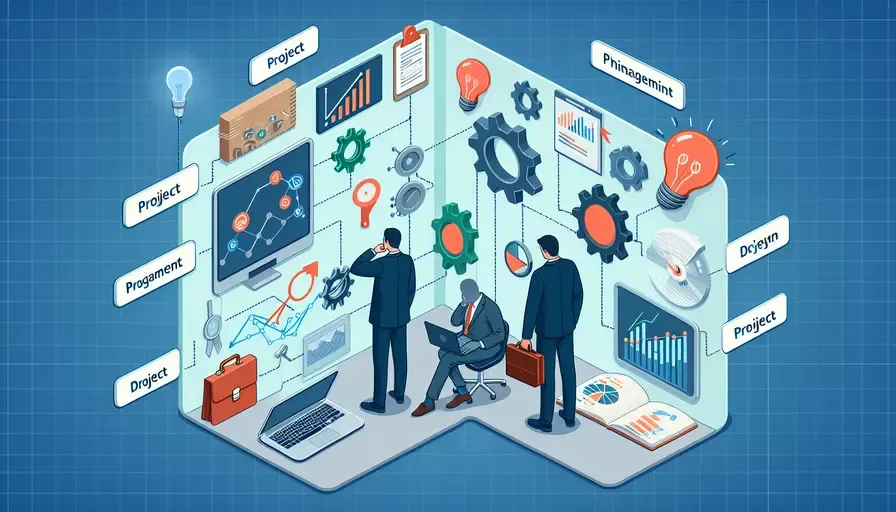The editor of Downcodes brings you a comprehensive interpretation of project management. This article will delve into the definition, characteristics, management processes, knowledge areas, tool techniques, and best practices of projects, along with answers to frequently asked questions to help you fully understand the essence of project management. Whether you are a new project manager or an experienced project manager, you can benefit a lot from it, improve your project management capabilities, and effectively improve work efficiency.

A project is a set of temporary activities designed to achieve a unique product, service, or outcome, with a clear start and end time, budget, resources, and goals. Project management is the application of knowledge, skills, tools and methods to project activities to meet project needs. The core of project management is to ensure that projects are completed according to established time frames, budgets and quality standards.
A project is a series of activities initiated to create a unique product or service. These activities are temporary, meaning they have a definite start and end time. The project has the following key features:
Clear goals: Every project has its specific goals and objectives, which are usually clearly defined before the project begins. Time constraints: Projects have a well-defined time frame, including a start and end date. Unique: The results of a project are often unique; they may be a new product, a new service, or an improved process. Limited resources: The resources required to conduct a project (including people, money, equipment, and materials) are often limited. Uncertainty and risk: Project activities are often accompanied by uncertainty, and possible risks need to be managed.Project management is a systematic process that includes a series of stages from project initiation to project closure. The five basic processes of project management are: initiation, planning, execution, monitoring and closing.
Initiation process: Defining project goals, scope, and objectives and formally authorizing the project to begin. Planning Process: Develop a detailed project plan, including timelines, cost estimates, resource allocations, risk assessments, and communications plans. Execution process: Allocate resources and allocate activities according to the project plan to ensure the realization of project goals. Monitoring process: Track project progress, compare actual progress with planned progress, manage changes, and ensure that the project proceeds as planned. Closing process: Complete all project activities, officially close the project, and conduct project evaluation and summary.In project management, there are several key knowledge areas that provide structure and guidance for the practice of project management. These knowledge areas include:
Project Scope Management: Ensuring that the project contains all necessary work and only necessary work. Project Time Management: Ensure projects are completed on time. Project Cost Management: Ensure projects are completed within budget. Project quality management: Ensure that project outputs meet relevant quality standards. Project Human Resource Management: Organizing, managing and leading project teams. Project Communications Management: Ensures the timely and appropriate generation, collection, distribution, storage and final processing of project information. Project Risk Management: Identify, analyze, and respond to project risks. Project Procurement Management: Purchasing or acquiring products, services, or results needed externally to the project team. Project Stakeholder Management: Identify all stakeholders and manage their expectations and involvement.To effectively manage projects, project managers need to master a range of tools and techniques. These tools and techniques include:
Project management software: such as Microsoft Project, Asana or Trello, helps project managers plan, execute and monitor project progress. Gantt Chart and Critical Path Method (CPM): Visual tools for time management and schedule planning. Budget management tools: such as spreadsheets or professional cost management software to track project costs. Quality management tools: such as scatter plots, histograms, and control charts, used to monitor and control quality standards. Communication platforms: such as email, instant messaging and conferencing software to ensure the flow of project information. Risk assessment tools: such as risk matrix and risk register, used to identify and analyze project risks.Successful project management requires not only mastering knowledge and techniques, but also following some best practices. These best practices include:
Clear project goals and communication: Ensure that the project’s goals, scope, and expectations are understood and agreed upon by stakeholders. Flexibility and adaptability: Project managers should be able to adapt to changes and uncertainties during the project. Continuous stakeholder engagement: Actively involve stakeholders in the project decision-making and feedback process. Risk management: Identifying and managing risks to ensure the project can cope with potential problems. Continuous learning and improvement: Learn from every project and apply lessons to future project management practices.Projects and project management are key components of organizational innovation and growth. Through effective project management, organizations can ensure that resources are allocated appropriately and goals are achieved, thereby improving competitiveness and success.
1. What does project mean?
A project is a temporary undertaking with clear goals and time constraints. It usually consists of a series of activities involving resources, time and quality aimed at achieving a specific outcome. Projects can be of various types, such as construction projects, software development projects, or marketing projects, etc.
2. What is project management?
Project management is a method of applying knowledge, skills, tools, and techniques to achieve project goals. It involves planning, organizing, coordinating and controlling all aspects of the project to ensure that the project is completed on time, on budget and with quality.
3. What is the importance of project management?
Project management is very important to the success of an organization. It helps organizations better manage resources, reduce risks, improve efficiency and product quality. Through project management, organizations can better plan and execute projects, ensuring that projects generate value as expected and achieve the organization's strategic goals.
I hope this project management guide from the editor of Downcodes will be helpful to you! Through learning and practice, you can become an excellent project manager and lead your team to success. Good luck with your project!